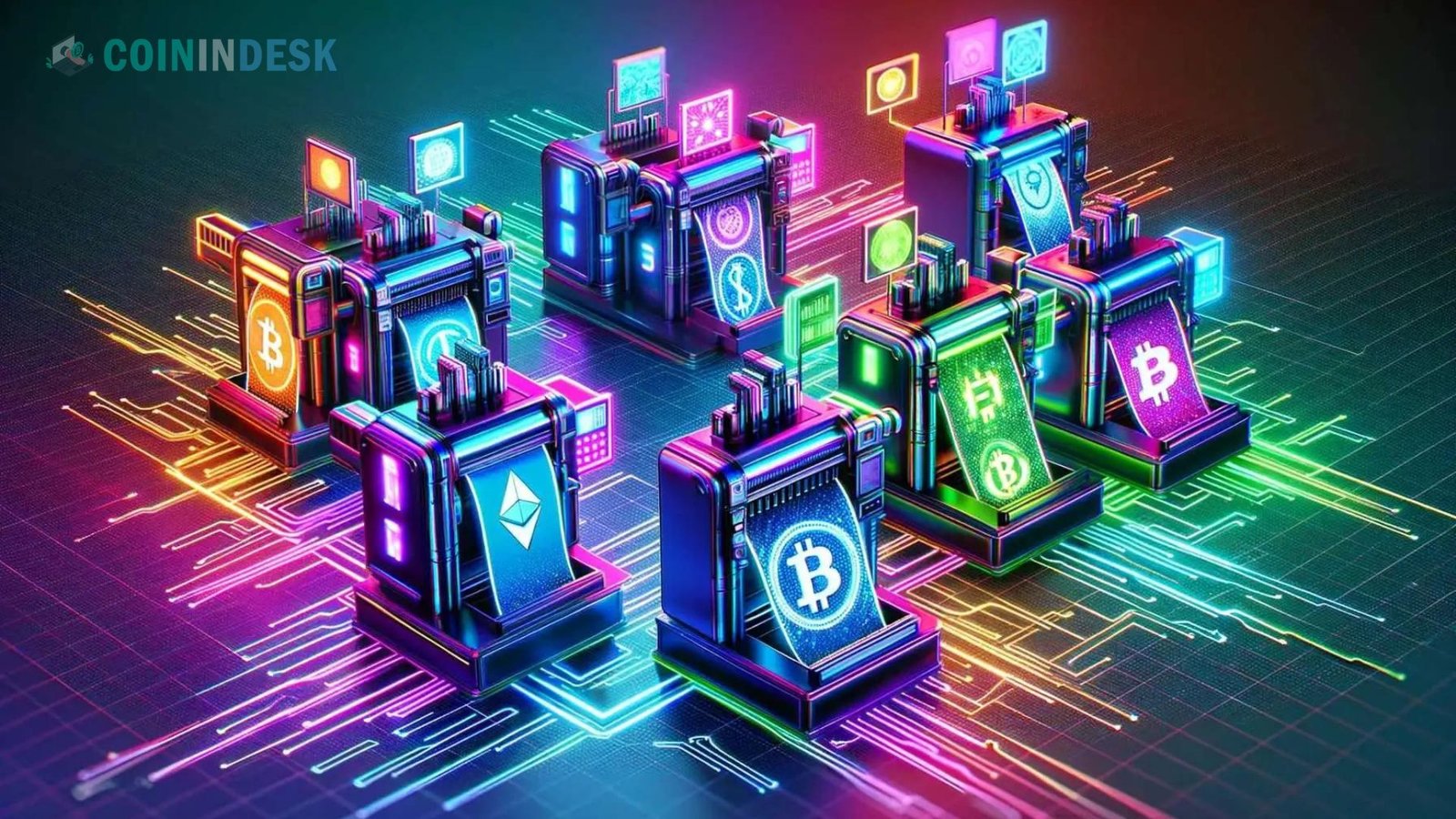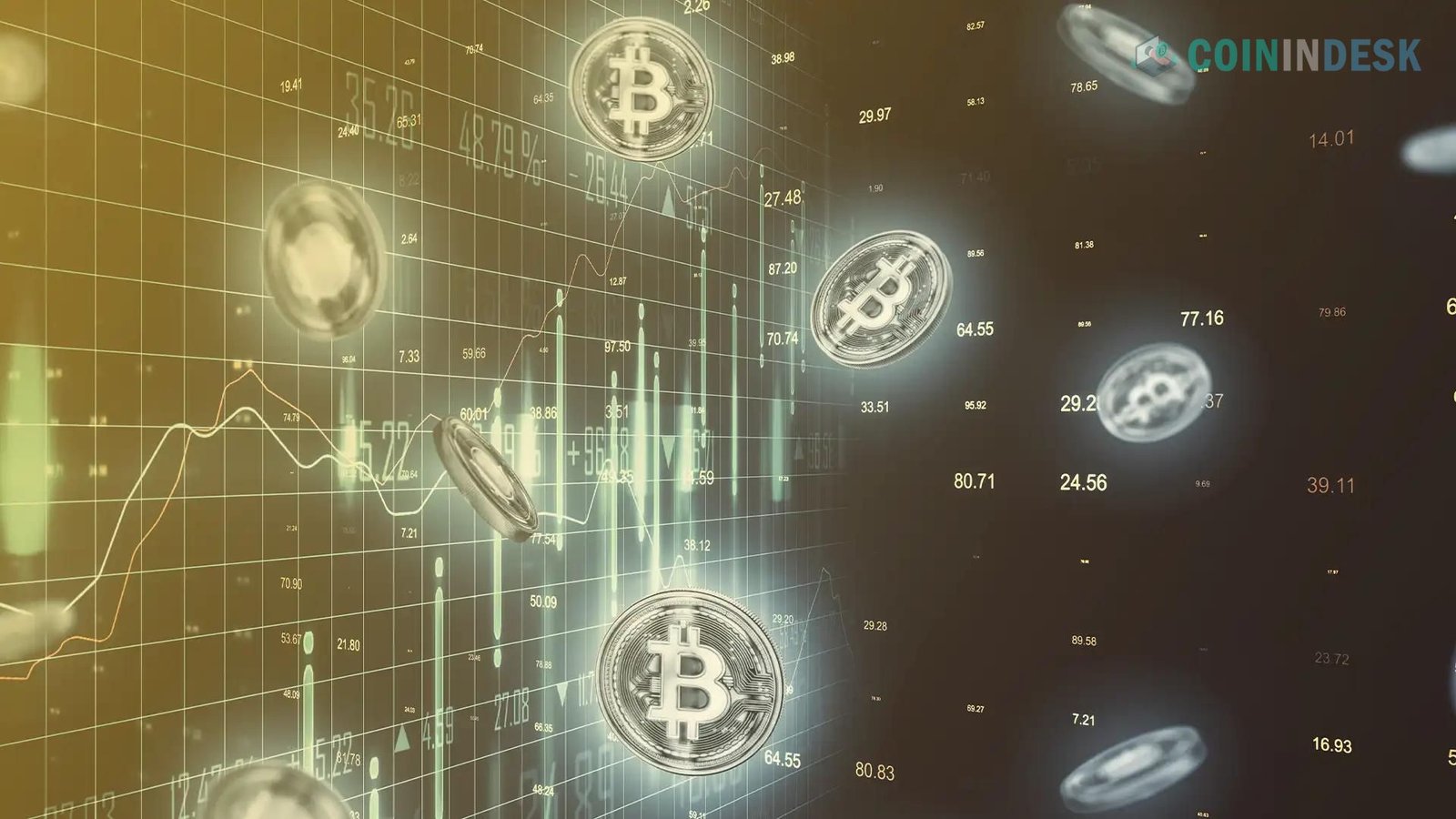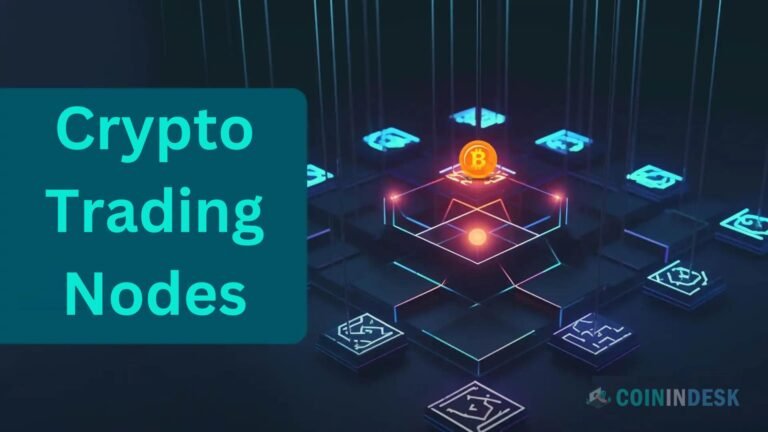Decentralized finance, or DeFi, is a rapidly growing trend in the dynamic crypto industry. Crypto trading nodes are ground zero of this revolution, a key component that is changing the game for online trading. With the rise in demand for decentralized trading and the elimination of centralized authorities, crypto trading nodes provide a potential solution to the problems of transparency, security, and autonomy. The paper explores the complexities of crypto trading nodes, their function in the DeFi ecosystem, and their prospective influence on the financial landscape of the future.
Understanding Crypto Trading Nodes
The most basic definition of a crypto trading node is an individual or entity that takes part in the process of validating and executing transactions inside a blockchain network. It is the job of the nodes to keep a copy of the blockchain ledger, verify the legitimacy of transactions, and then distribute this verified information to other nodes in the network. When it comes to trading, these nodes are essential for DEXs, which remove the need for a middleman and let consumers trade cryptocurrencies directly with one another. There are different types of nodes within a blockchain network, each with its specific function:
- Full Nodes: These nodes maintain a complete copy of the blockchain and are responsible for validating transactions and blocks. Full nodes are essential for the security and integrity of the blockchain.
- Light Nodes: Also known as lightweight nodes, these maintain only a subset of the blockchain and rely on full nodes to verify transactions. Light nodes are often used in applications where storage and processing power are limited.
- Mining Nodes: These nodes contribute computational power to solve complex mathematical puzzles, which are essential for the creation of new blocks. Mining nodes are integral to proof-of-work (PoW) blockchains like Bitcoin.
- Staking Nodes: In proof-of-stake (PoS) blockchains, staking nodes participate in the network by locking up a certain amount of cryptocurrency as collateral. These nodes help validate transactions and create new blocks, earning rewards in the process.
The Role of Trading Nodes in Decentralized Exchanges
An alternative to traditional centralized exchanges, decentralized exchanges (DEXs) have recently gained popularity. Decentralized exchanges (DEXs) allow users to trade directly with one other, as opposed to centralized exchanges, where a single entity controls the platform and keeps users’ funds. These DEXs couldn’t function without crypto trading nodes, which guarantee the safety and openness of transactions and make it possible to execute deals. Trading nodes within a DEX network perform several critical functions:
- Order Matching: When a user places a buy or sell order on a DEX, trading nodes are responsible for matching the order with a corresponding counterparty. This process occurs automatically through smart contracts, which are self-executing contracts with the terms of the agreement directly written into code.
- Liquidity Provision: Some trading nodes act as liquidity providers, offering a pool of assets that can be traded on the exchange. By providing liquidity, these nodes help ensure that there is sufficient volume for trades to occur without significant price slippage.
- Transaction Validation: Just like in other blockchain applications, trading nodes validate transactions to ensure they are legitimate and comply with the network’s rules. This validation process is critical for maintaining the security and integrity of the DEX.
- Price Discovery: Trading nodes contribute to the process of price discovery by facilitating trades between buyers and sellers. The decentralized nature of DEXs ensures that prices are determined by market forces rather than a central authority, leading to more transparent and fair pricing.
Advantages of Crypto Trading Nodes
Crypto trading nodes offer several advantages that make them an attractive option for traders and investors in the cryptocurrency space:
- Decentralization: By removing the need for a central authority, trading nodes enable a more democratic and transparent trading environment. This decentralization reduces the risk of manipulation, censorship, and single points of failure.
- Security: Since trading nodes operate within a blockchain network, they benefit from the inherent security features of blockchain technology. Transactions are cryptographically secured, making them resistant to fraud and hacking.
- Autonomy: Users retain control of their funds at all times when trading on a DEX. This autonomy contrasts sharply with centralized exchanges, where users must trust the exchange to safeguard their assets.
- Lower Costs: Trading on a DEX often involves lower fees than on centralized exchanges. This is because there are no intermediaries to take a cut of the transaction, and the cost of operating the exchange is distributed across the network.
- Global Accessibility: DEXs powered by trading nodes are accessible to anyone with an internet connection, regardless of location. This global accessibility opens up opportunities for individuals in regions with limited access to traditional financial services.
Challenges and Considerations
While crypto trading nodes offer numerous benefits, they also come with their own set of challenges and considerations:
Scalability
One of the primary challenges facing DEXs is scalability. As the number of users and transactions grows, the network can become congested, leading to slower transaction times and higher fees. Innovations like layer-2 scaling solutions and sharding are being developed to address these issues.
Liquidity
While some DEXs have seen significant growth in liquidity, others struggle to attract sufficient volume. Low liquidity can result in price slippage and make it difficult for users to execute large trades without impacting the market price.
User Experience
DEXs can be more complex to use than centralized exchanges, particularly for beginners. The need to manage private keys, interact with smart contracts, and navigate different interfaces can be daunting for new users.
Regulatory Uncertainty
The regulatory landscape for DEXs and crypto trading nodes is still evolving. Governments around the world are grappling with how to regulate these platforms, and there is a risk that new regulations could impact their operation.
Security Risks
While blockchain technology is inherently secure, no system is entirely immune to risks. Smart contract vulnerabilities, for example, have been exploited in the past, leading to significant losses for users. DEXS must undergo rigorous security audits to mitigate these risks.
The Future of Crypto Trading Nodes
The importance of crypto trading nodes will certainly grow as the cryptocurrency market develops further. The capabilities of trade nodes will be improved when new blockchain protocols and technologies are developed. These nodes will become more efficient, scalable, and user-friendly.
Improving trade nodes through integrating AI and ML is one of the most promising advancements. Trading strategy optimization, liquidity management, and DEX user experience could all be improved with these tools.
Trading nodes will soon be able to function across several blockchains, thanks to the proliferation of cross-chain interoperability solutions. This will open up even more asset types for users to trade with ease. The accessibility and liquidity of decentralized trading platforms will be significantly improved by this compatibility.
On top of that, new and exciting financial products and services will be developed on top of trading nodes in the future as the DeFi ecosystem keeps expanding. The DeFi industry will develop as a result of developments such as decentralized lending and borrowing platforms, derivatives markets, and insurance protocols.
Conclusion
Crypto trading nodes provide a fresh approach to trading with an emphasis on openness, safety, and independence; they are an essential part of the decentralized financial system. Despite persistent hurdles, trading nodes are poised to play a pivotal role in the future of finance, thanks to blockchain technology’s continued growth and DeFi’s expanding popularity. To make the most of the prospects in this dynamic and fast-paced industry, traders and investors must keep up with the newest developments in trading node technology as the market undergoes continuous evolution.


